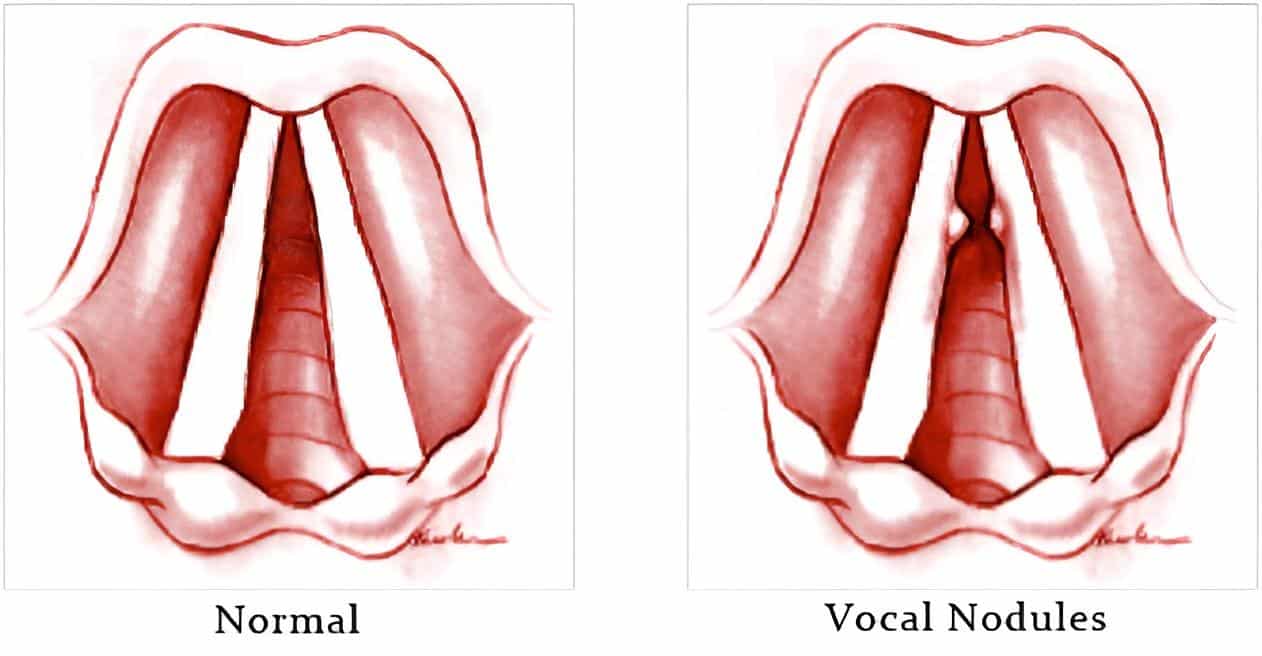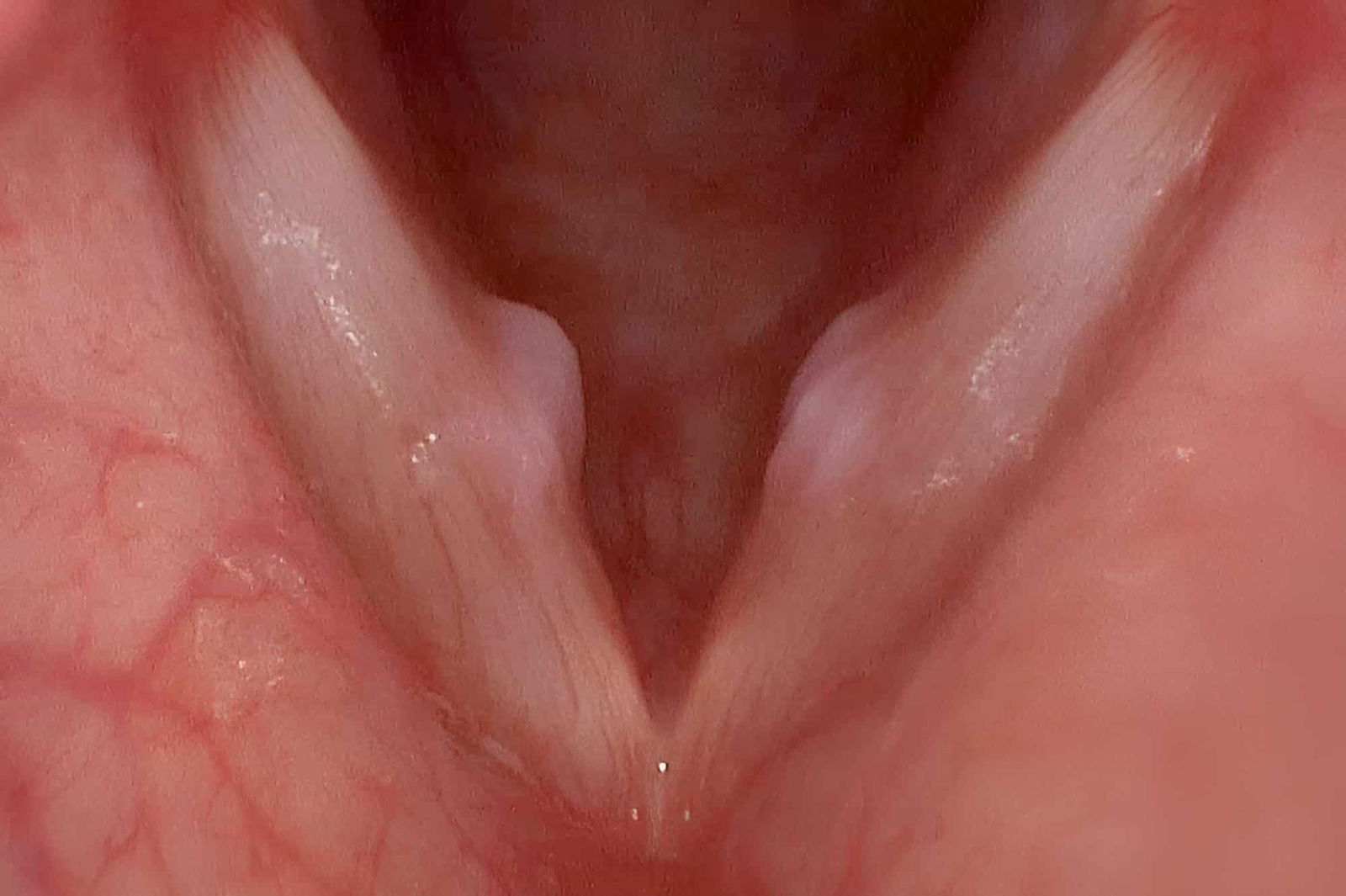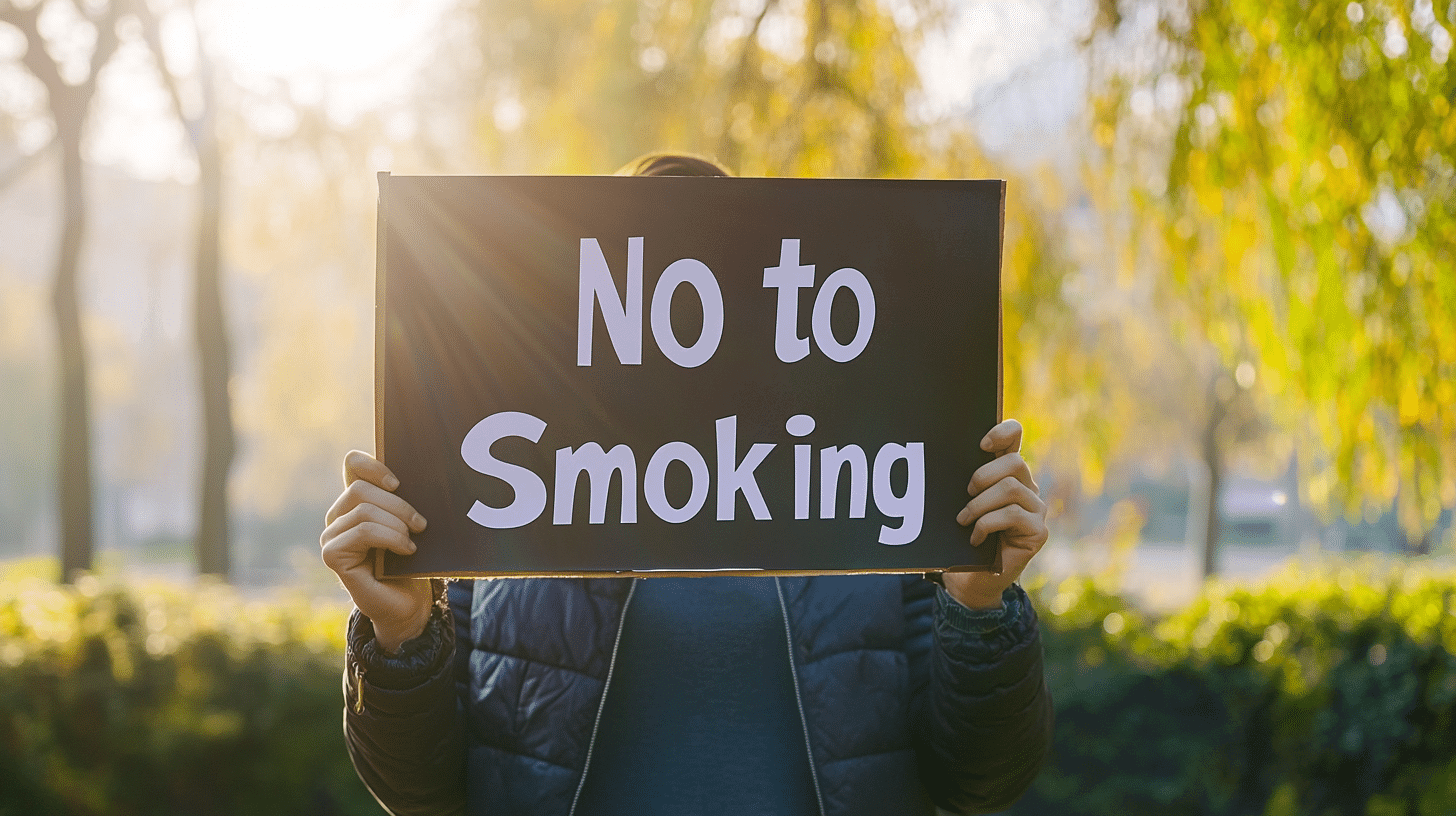Feeling worried about changes in your voice? You’re not alone.
Many people experience hoarseness or vocal strain and wonder if they’ve developed vocal nodules.
It’s a valid concern, especially for those who use their voice frequently.
Good news: you can take steps to identify potential vocal cord issues from the comfort of your home.
This blog post offers a simple self-assessment quiz to help you recognize signs of vocal nodules.
We’ll guide you through key symptoms to watch for and provide insights on when to seek professional help.
By the end of this post, you’ll have a clearer understanding of your vocal health and know what to do next if you suspect vocal nodules.
What are Vocal Nodules?
Vocal nodules are small, non-cancerous growths that form on the vocal cords.
They’re often compared to calluses and typically result from overusing or misusing your voice. If you have vocal nodules, you might notice several changes in your voice.
These can include a constant hoarse or raspy sound, difficulty reaching certain pitches, a breathy or strained quality when speaking, and feeling tired or uncomfortable after talking for extended periods.
Some people also experience a scratchy sensation in their throat. These symptoms often worsen over time if left untreated, making it important to pay attention to persistent voice changes.
“Do I Have Vocal Nodules?” Self-Assessment Quiz
Do you think you might have vocal nodules?
Let’s find out with this quick self-assessment quiz. Catching vocal nodules early is key to proper treatment, so this quiz can help you decide if it’s time to see a specialist.
Answer These Questions with a Simple ‘yes’ or ‘no’:
1. Is your voice often hoarse or raspy?
2. Do you clear your throat or cough a lot when talking?
3. Does your job or hobby involve frequent yelling or straining your voice?
4. Do you need voice breaks after speaking for a while?
5. Is there discomfort in your neck when you talk or sing?
6. Do you feel like there’s something in your throat when you use your voice?
7. Have you noticed changes in your vocal range, especially with high notes?
8. Does your voice feel tired after long conversations?
9. Have you lost your voice recently after talking a lot?
10. Are you a smoker or often around secondhand smoke?
Scoring: Count how many times you answered ‘Yes’. If you have four or more ‘Yes’ answers, it might be a good idea to talk to a voice specialist. They can give you a proper check-up and advice on what to do next.
Remember, this quiz is just a starting point. It can’t replace a professional medical opinion, but it can help you decide if you should seek expert help.
Causes and Risk Factors of Vocal Nodules
1. Voice Misuse and Overuse
Vocal nodules often develop due to persistent overuse of the voice. Activities that put extra stress on your vocal cords include:
- Frequent shouting or raising your voice
- Singing without proper technique
- Non-stop talking without breaks
People who push their voices to the limit are at the highest risk. If your daily routine involves heavy voice use, give your voice regular rest periods.
This can help reduce strain and lower the chances of nodule formation.
2. Lifestyle and Environmental Factors
Several everyday habits and environmental conditions can contribute to the development of vocal nodules:
- Tobacco Use: Using tobacco products irritates the vocal cords, leading to inflammation that may cause nodules. Even being around others who smoke can increase your risk of vocal cord damage.
- Digestive Issues: Problems like acid moving up from the stomach can harm your vocal cords. If not addressed, this irritation might lead to nodules over time.
- Allergies and Sinus Problems: Ongoing allergies or sinus infections can cause throat irritation and require frequent throat clearing, putting extra strain on your vocal cords.
To protect your voice, consider quitting tobacco use, managing digestive issues with diet changes and proper treatment, and effectively controlling allergies and sinus conditions.
3. High-Risk Professions
Some jobs require extensive voice use, putting certain professionals at higher risk for vocal nodules:
- Teachers
- Singers
- Public speakers
- Cheerleaders
These individuals often push their voices beyond healthy limits due to work demands. If your job involves frequent voice use, seeking voice training or speech therapy is a good idea.
These can teach you techniques to reduce strain and improve your vocal endurance, helping to protect your voice in the long run.
When to Seek Professional Help
If you’ve been dealing with a hoarse voice, feeling tired after speaking or experiencing other voice issues for more than two weeks, it’s time to see a voice doctor, also known as a laryngologist.
These experts specialize in treating vocal cord problems, including nodules.
Don’t put off getting help. The sooner you see a specialist, the better your chances of effective treatment and avoiding long-term voice damage.
What to Expect at Your Appointment
During your visit, the doctor will:
- Ask about your medical history and voice use
- Conduct a thorough exam
- Look into your lifestyle habits that might affect your voice
This comprehensive approach helps pinpoint the root cause of your voice issues.
Prevention Tips: Protecting Your Voice
1. Vocal Care Strategies
Keep Your Voice Hydrated
Drinking plenty of water is crucial for vocal cord health. Proper hydration keeps your vocal cords lubricated, reducing strain and potential damage.
- Try This: Aim for 8 glasses of water daily. Cut back on drinks that dry out your vocal cords, like coffee and alcoholic beverages.
Give Your Voice a Break
Pushing your voice too hard through constant talking or raising your voice can irritate your vocal cords and potentially lead to nodules.
- Practical Tip: If you use your voice a lot for work, take regular voice breaks throughout the day. Even short periods of silence can help your vocal cords recover.
Use Voice Amplification
When speaking to large groups, use a microphone or other sound-boosting tools to avoid straining your voice.
- Who It Helps: Teachers, public speakers, and performers can benefit greatly from amplification to prevent vocal fatigue and long-term damage.
2. Avoiding Voice Irritants
Say No to Tobacco
Using tobacco products harms your vocal cords and increases your risk of developing nodules. Even being around others who smoke can hurt your voice.
- What You Can Do: If you smoke, quitting is one of the best ways to protect your voice. Also, try to avoid places where you might breathe in secondhand smoke.
Tackle Allergies Head-On
Untreated allergies can make you clear your throat often, putting extra strain on your vocal cords.
- Try This: Work with your doctor to find the right allergy medications or nasal sprays. This can help reduce throat irritation and prevent the need for frequent throat clearing.
3. Watch What You Eat
Acid moving up from your stomach can irritate your vocal cords and contribute to nodule formation. Managing this issue through diet and lifestyle changes is important.
- Prevention Tip: Avoid spicy and fatty foods, eat smaller meals, and wait a while before lying down after eating to help keep acid reflux in check.
3. Voice Therapy: A Proactive Approach
Work with a Voice Professional
If you use your voice a lot for work, consider seeing a speech therapist or vocal coach. They can teach you techniques to reduce vocal strain.
- What to Expect: Voice therapy often includes exercises to strengthen your vocal cords, improve your breathing, and help you use your voice more efficiently.
Start Early, Stay Healthy
Learning proper vocal techniques early on can prevent long-term damage, especially if your job depends on your voice.
- Key Advice: Regular check-ups with a voice therapist can help you maintain vocal health and prevent issues like vocal nodules from coming back.
By following these prevention tips, you can significantly reduce your risk of developing vocal nodules and maintain a healthy, strong voice for years.
Wrapping It Up
Your voice is a valuable asset, and taking care of it is crucial.
By understanding the signs of vocal nodules and knowing when to seek help, you’re already on the right track to maintaining vocal health.
Remember, early detection and proper care can make a significant difference in treatment outcomes.
If you’ve noticed persistent changes in your voice, don’t hesitate to consult a specialist. In the meantime, incorporate the prevention tips we’ve discussed into your daily routine.
Whether you’re a professional voice user or someone who enjoys casual conversation, these strategies can help keep your voice strong and healthy.
Listen to your voice – it’s telling you something important about your overall well-being.
Frequently Asked Questions
Can You Physically Feel Vocal Nodules?
Yes, vocal nodules can be painful. While they’re not harmful like cancer, they can make it uncomfortable to speak and affect your communication.
Is It Bad to Sing with Vocal Nodules?
Singing with vocal nodules isn’t recommended, but it’s not career-ending. Proper technique and treatment can help. In the past, poor surgical outcomes gave nodules a bad reputation.
How Long Do Vocal Nodules Last?
Vocal nodules can last 6 to 12 weeks with voice therapy. However, they may return if the underlying cause, like reflux or vocal misuse, isn’t addressed.


























